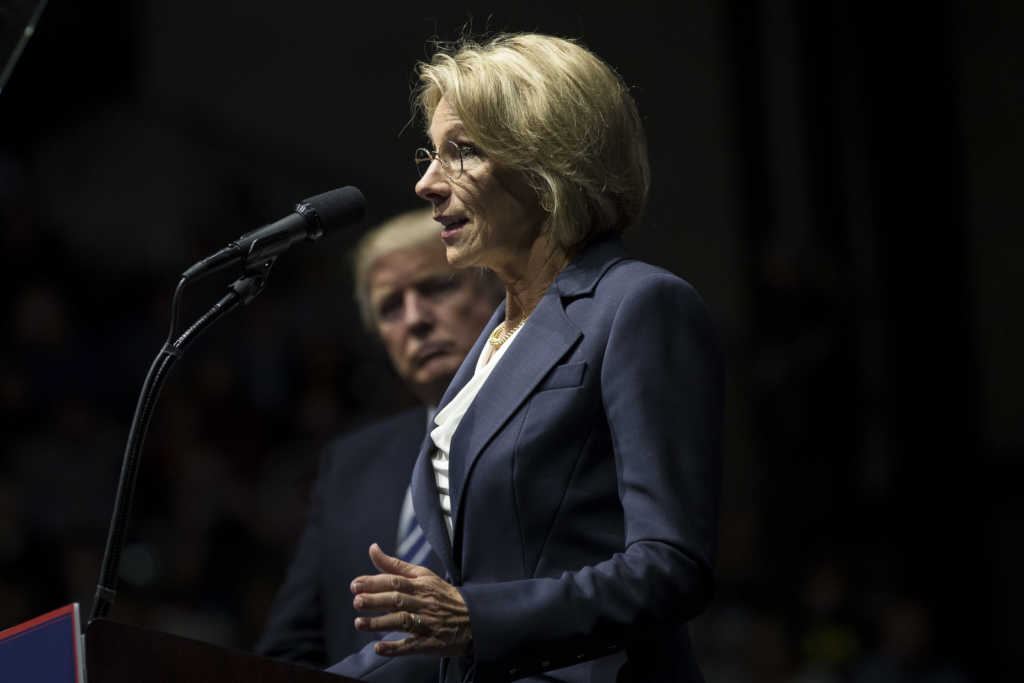Education Secretary Betsy DeVos made a bold move Wednesday to loosen federal regulations on religious colleges and universities. The action came following a controversial Supreme Court decision that restricted states from denying some kinds of aid to religious institutions.
‘God Kept Me Alive’: Sudanese Man Who Became a U.S. Citizen Builds School in His Home Country
The measure is just one facet of a wider deregulatory campaign by the Education Department, which was announced by the White House budget office earlier this week. DeVos is determined to scrap many of the rules that seek to restrict faith-based entities from receiving federally administered funding.
“Various provisions of the department’s regulations regarding eligibility of faith-based entities and activities do not reflect the latest case law regarding religion or unnecessarily restrict religion,” said Liz Hill, an Education Department spokeswoman, as reported by the New York Times. “The department plans to review and to amend such regulations in order to be more inclusive.”
The Education Department appears to be engaging in an assault on the over-regulation of religious-affiliated schools on the back of a Supreme Court case last year. The case “Trinity Lutheran Church of Columbia Inc. v. Comer” saw the court rule that the state of Missouri had engaged in blatantly unconstitutional religious discrimination when refused to allow a church-run preschool from accessing publicly-funded tire scraps for its playground. Now, DeVos and the Education Department is vowing to never let this type of thing happen again through a mass deregulation effort.
“Except in the narrowest circumstances, no one should be forced to choose between living out his or her faith and complying with the law,” Attorney General Jeff Sessions wrote in a memo last fall. “Therefore, to the greatest extent practicable and permitted by law, religious observance and practice should be reasonably accommodated in all government activity, including employment, contracting and programming.”
DeVos is determined to sweep away many of the regulations that leave religious organizations at a distinct disadvantage. The Education Department said it was seeking to eradicate regulations that “unnecessarily restrict participation by religious entities” and is also determined to “reduce or eliminate unnecessary burdens and restrictions on religious entities and activities.”
As for religious colleges participating in federally funded student aid, the Department said that many of the provisions laid out in the Higher Education Act are “overly broad in their prohibition of activities or services that relate to sectarian instruction or religious worship.”
A notice posted by the Education Department entitled “Eligibility of Faith-Based Entities and Activities,” explained its de-regulatory agenda.
“Various provisions of the Department’s regulations regarding the eligibility of faith-based entities to obtain grants from the Department or to participate in State-administered programs and the activities that they may perform unnecessarily restrict participation by religious entities in the Department’s grant programs by including requirements specific to such entities. The Department plans to review and to amend or rescind such regulations in order to be consistent with current law and to reduce or eliminate unnecessary burdens and restrictions on religious entities and activities.”
Religious colleges were delighted with the new indication that the department was making a concerted effort to combat the rules that so profoundly affect them.
“We appreciate Secretary DeVos’s commitment to ensuring students are able to obtain quality educations at the institutions of higher education that will best serve their needs, including religious colleges and universities,” said Shirley V. Hoogstra, president of the Council for Christian Colleges & Universities, as reported by Inside Higher Ed. “Eliminating or revising regulations that impose undue and outdated restrictions on religious institutions is an important and welcome development.”
(H/T: The New York Times)



